Tzar Oluigbo [Lead Writer]
For dedicated farmers like Baliqees Salaudeen-Ibrahim, the effect of climate change has been disheartening. Her once-dependable weather patterns that she relied on for her planting and harvesting have become unpredictable, jeopardising her livelihood.
“The rain used to come like clockwork before,” Baliqees recalls, standing on what was once a productive vegetable farm. “But now, we never know what to expect. Towards the end of 2022 into 2023, we lost five acres because the rain just wouldn’t stop, and pest infestation on our field increased.”
Despite adopting climate-smart agricultural techniques like drip irrigation and protective mulching, the constant rain swamped her crops, wiping away months of hard work. The excessive moisture also provided a breeding ground for pests, compounding the damage and reducing yields. “What was more devastating was the fact that we had people waiting our harvest,” Baliqees said.
![Nylon [protective] Mulching to prevent soil from erosion, protecting the seeds and the farmland. Image Credit: GRF](https://cdn-images-1.medium.com/max/1200/0*kHAs0Nmzowja05lc.jpeg)
Climate change poses a threat to global food security by disrupting the delicate balance of the natural ecosystems that sustain food production. Rising temperatures, shifting precipitation patterns, increased rainfall frequency and severity of droughts are among the factors that affect crop yields, livestock, fisheries, and agricultural infrastructure.
In the heart of Olokuta, a community in Ibadan, Oyo State, a group of determined farmers at Green Republic Farms (GRF) is “waging a daily war” against the unpredictability of climate change. This youth-led social enterprise and mechanised climate smart agricultural practicing company was set up in 2019 to address food supply chain challenges. According to Baliqees, the Co-Founder, GRP’s mission is to eliminate poverty and create a world of zero hunger through mechanised and climate-smart agricultural practices, while also providing more quality and inclusive jobs for young people and women.
Innovation in the face of adversity
The world population is estimated to reach over 9 billion in 2050. As the world population continues to grow, so does the demand for food, raising concerns about how the current global food system will be able to sustain the population in the face of the growing climate threats.
Within this population, the majority of the world’s poor reside in rural areas and rely on agriculture as a primary source of income and sustenance. Thus, the agricultural sector is not only integral to feeding the world, but it also crucial for poverty alleviation in these vulnerable communities.
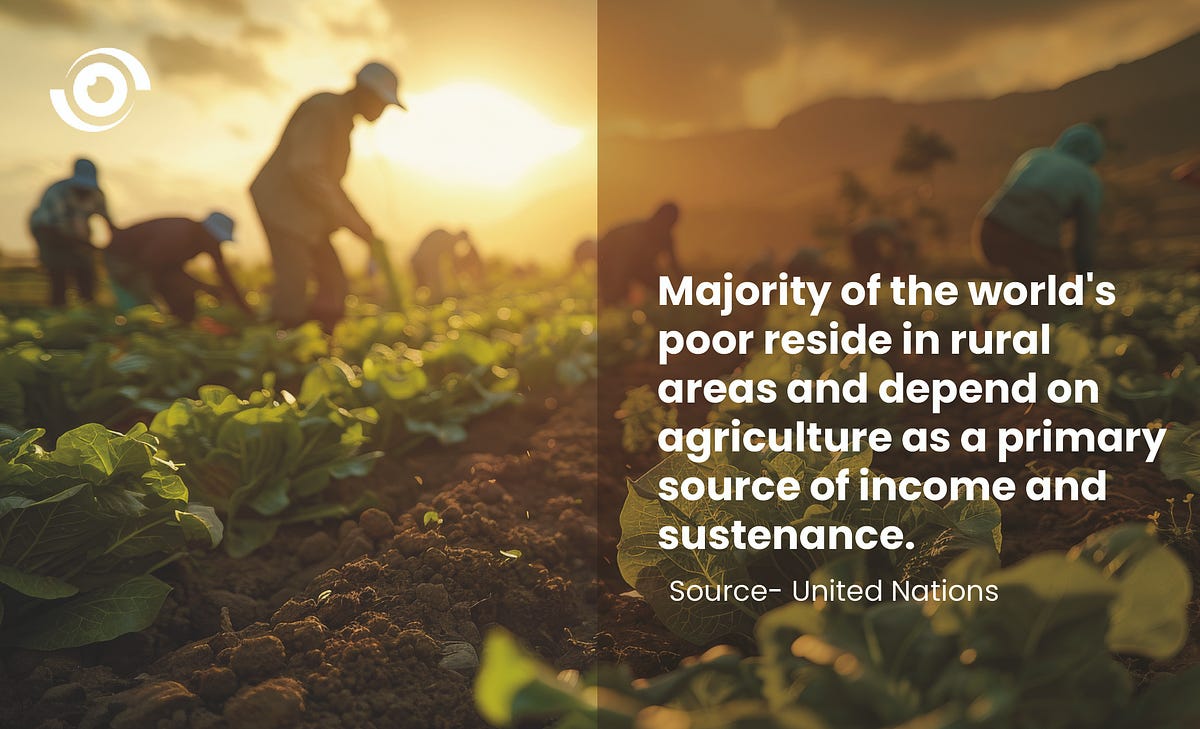
In response to these obstacles, Green Republic Farms embarked on an innovative journey, constructing three greenhouses in the Olokuta community in Oyo State. They sought to protect crops in a carefully controlled environment, insulating their produce from the unpredictable nature of the weather. “We had to adapt….in the greenhouses, we can control the conditions. It’s not just about surviving anymore; it’s about thriving” a farmer with Green Republic Farms explained.
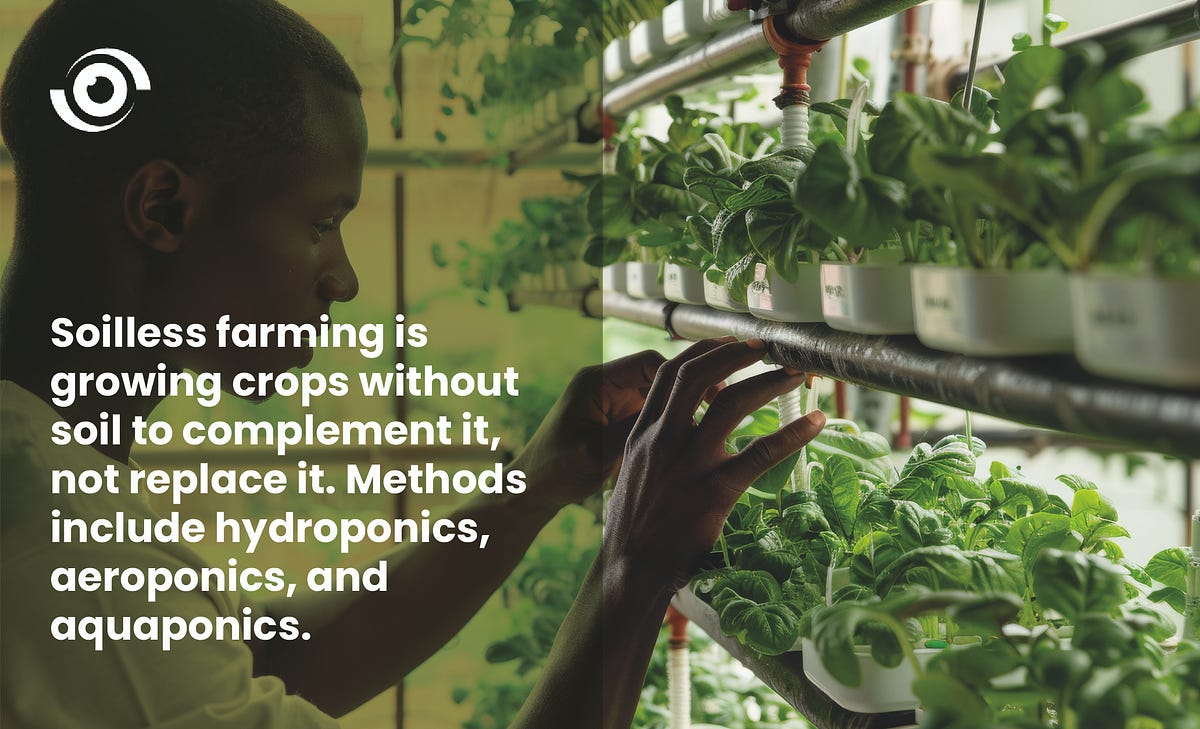
The greenhouses hold a variety of soil-based and soilless farming systems, which have become a sanctuary for the farm’s produce. They presently cultivate bell peppers, habaneros, and tomatoes on a 7-acre plot, and their open field produces 3 tonnes each week.
![A picture of produce [scotch bonnet] from the farm after harvest.](https://cdn-images-1.medium.com/max/1200/0*NoB4y5aNtz-87JqW.jpg)
Empowering the community
Women account for 43% of the worldwide agricultural workforce, with 60% of those working in developing countries. With the increasing impact of climate change, a study looking at gender vulnerabilities to climate change found that women bear the burden of increased workloads, due to fluctuating crop yields. Furthermore, a 2023 study published by the International Food Policy Research Institute (IFPRI), providing women with the same resources as men, increase their farm yields by 20–30%, significantly improving food security.
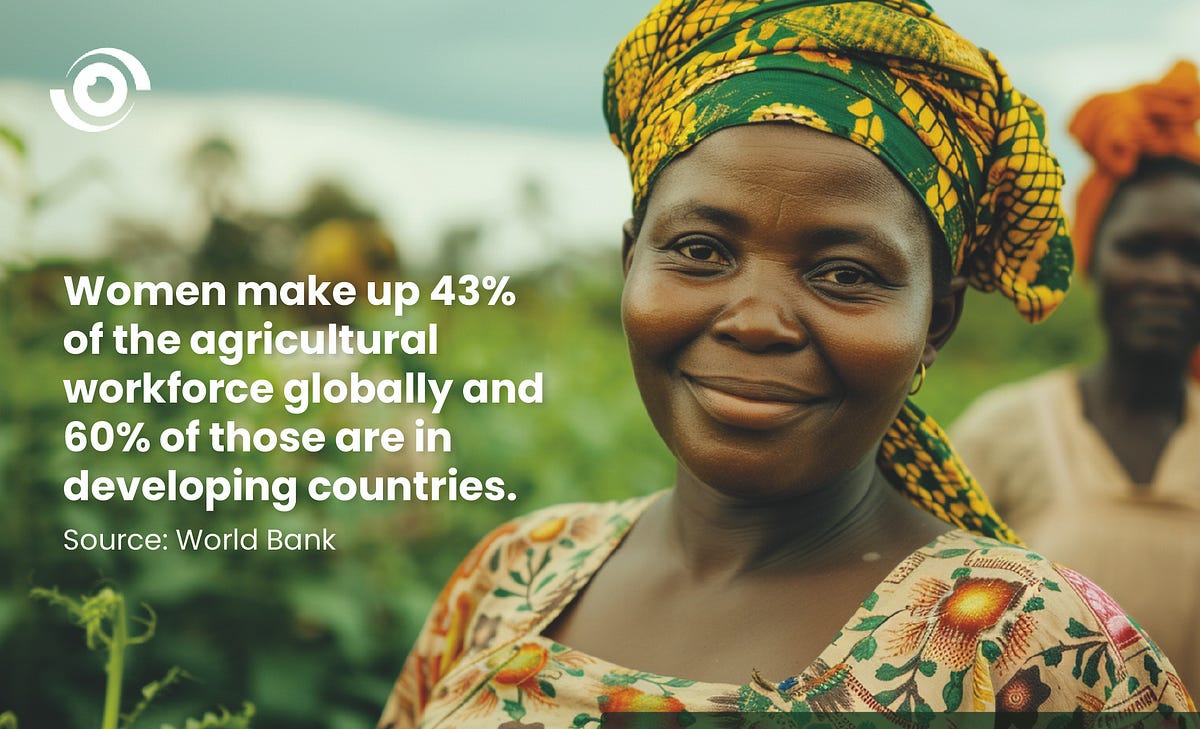
Understanding this context, Green Republic Farms positioned women empowerment at the centre of their goal to mitigate the impact of climate change for vulnerable populations. The farm has launched various programmes to teach local women how to manage and cultivate crops within controlled environments. Currently, over 65 women are being trained on greenhouse farming including innovations and strategies to adopt to boost production. “Teaching the women how to farm in the greenhouses has been transformative,” Baliqees said. “They are gaining skills that allow them to support their families and contribute to the community’s resilience.” She added.
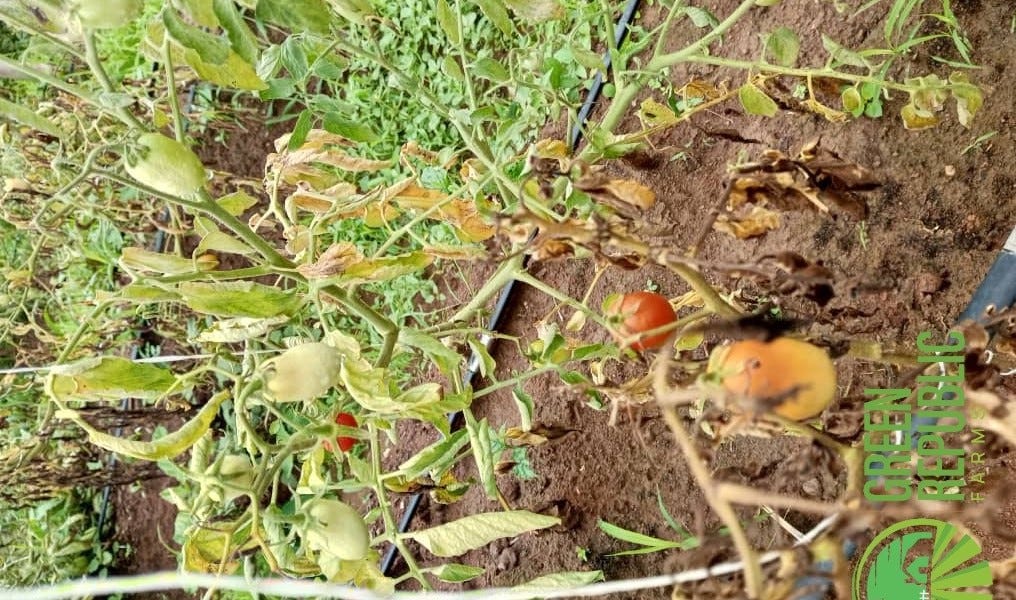
Aisha a mother in the community shared her experience following the training by GRF. She noted that before the training programme, she did not have knowledge on how to manage pest infection of her farm which was caused by the heavy rainfall. “My name na Aisha, and I be one of the women wey Green Republic Farms don train. Before this programme, I no sabi anything about greenhouse farming, but now I don dey empowered. This training don improve my farming skills, and now, I fit support my family well”. Aisha said.
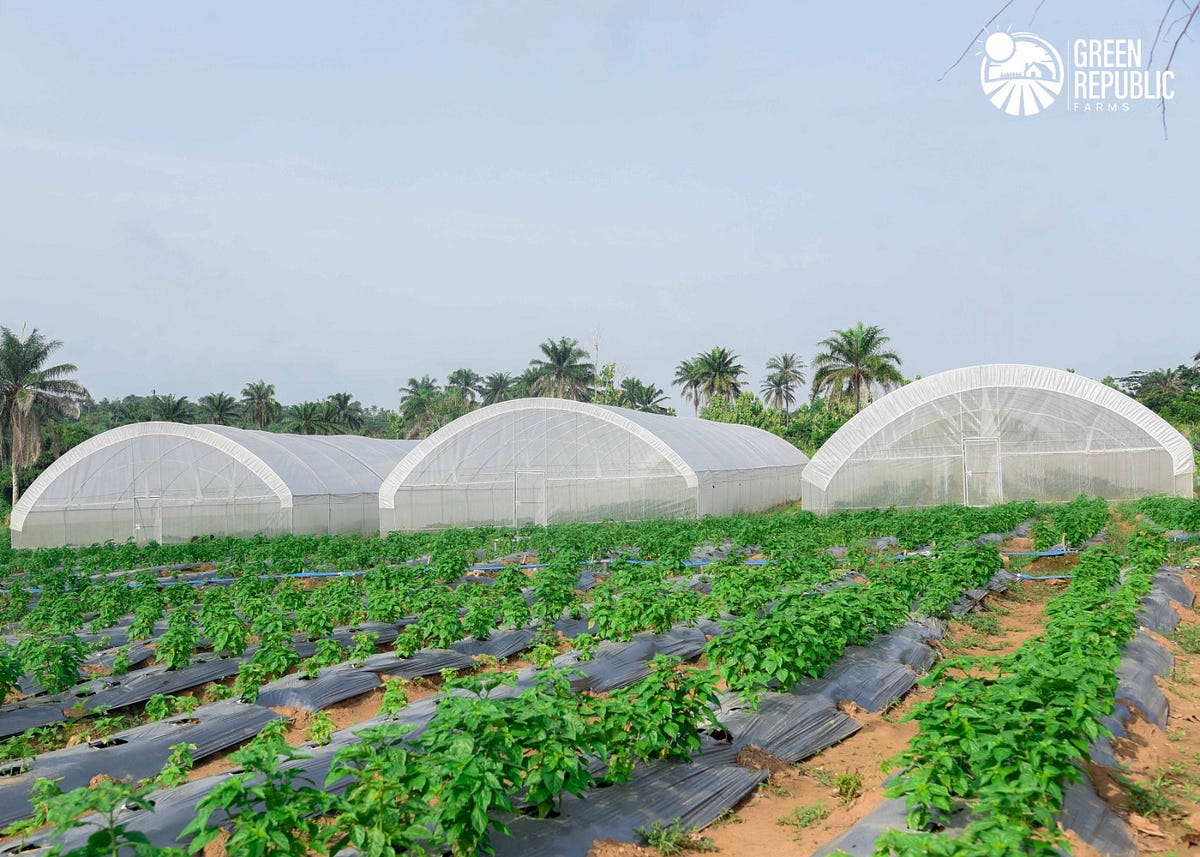
Bringing the food closer to home
Another challenge GRF identified was the distance required to transport agricultural produce from the country’s northern region to the southwest for consumption. Besides the environmental impact of transporting food over a long distance, it also causes food waste and has economic implications.
“Most of the vegetables that come to the southwest [of Nigeria] come from the north and some stay as long as 5 days on the road. So we decided to farm closer to the southwestern market to cut down transportation cost and get the products to the market in good time”. Baliqees pointed out.
Utilising renewable energy.
Considering the erratic rainfall patterns caused by climate change, relying on natural water sources for irrigation is no longer a viable option. To keep their crops hydrated and thriving, GRF has invested in an irrigation system, however, the cost of maintaining this system has hindered their progresses significantly.
As fuel prices have skyrocketed to N900 per litre, and at least 30 litres is required each week to run the irrigation systems. The financial strain of this expenditure makes it critical for an alternative, cost-effective and sustainable energy solutions to ensure that the continuation of their agricultural activities.
“Many farmers [in Nigeria] can’t afford drip irrigation or to drill boreholes, they are at the mercy of the weather, and it’s becoming increasingly unstable.” Baliqees notes.
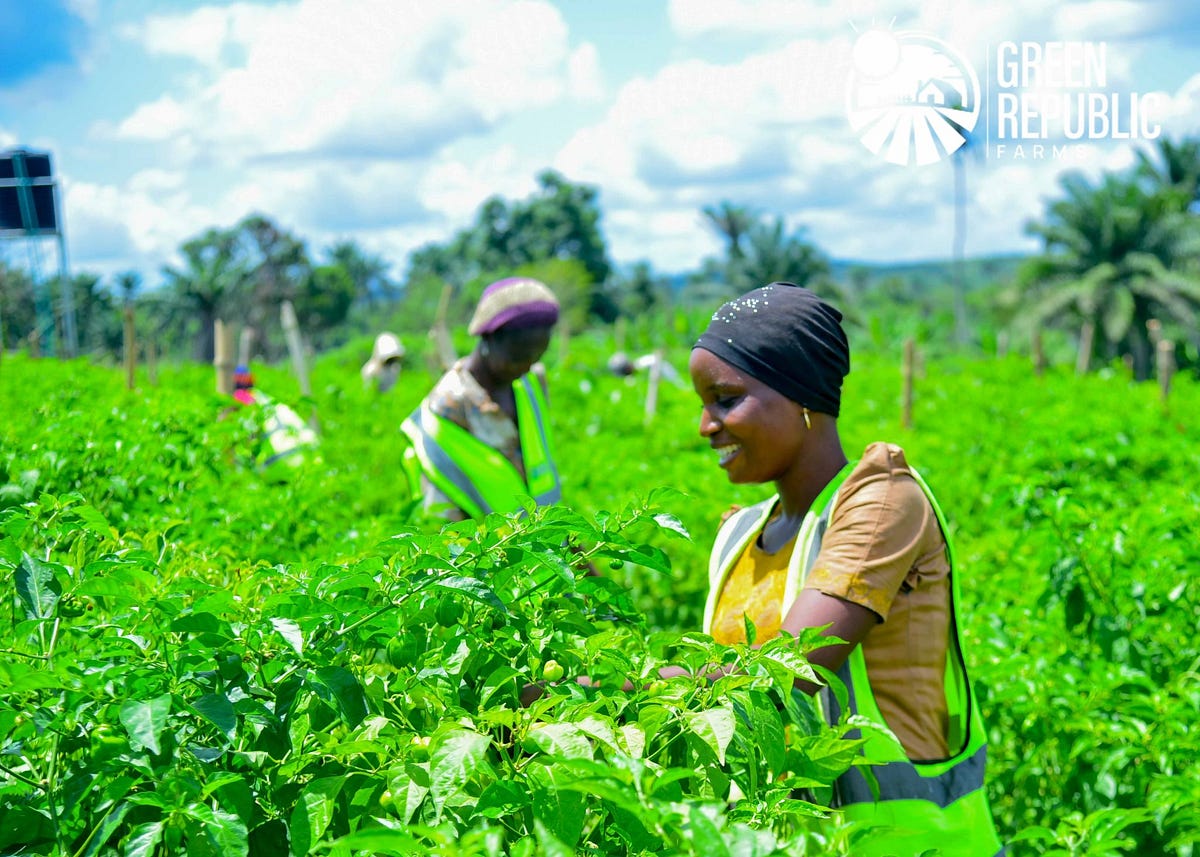
With an eye towards a more sustainable future, GRF is planning to delve into the promising possibilities of renewable energy such as installing solar-powered boreholes as a solution to their energy needs. In this way, GRF is embracing a greener future while also safeguarding its agricultural operations and ensuring food security for the community.
The climate is changing, but are we?
Addressing the challenges posed by climate change requires a multifaceted approach that includes scientific innovation, community engagement, and robust policy support.
Climate-smart agriculture (CSA) is an integrated approach to managing landscapes — cropland, livestock, forests and fisheries — that address the interlinked challenges of food security and climate change. According to World Bank, the global agrifood system must deliver on multiple fronts. To feed the world, governments and stakeholders must adapt to climate change. In response to these challenges, the concept of CSA has emerged in communities as an approach to end food insecurity and promote sustainable development while addressing climate change issues.
However, their adoption and usage in developing countries like Nigeria could be hampered by the high cost of procuring the equipment, as well as a lack of infrastructure, access to energy, and inadequate knowledge about the benefits of modern technology in agriculture.
Furthermore, climate finance needs to be more accessible, emphasising the importance of addressing climate change impacts on health and not just agriculture. Not many governments have paid adequate attention to integrating climate change and health in their policies, which is a significant oversight. Food security is not just an agricultural issue but also a health issue, requiring a more holistic approach to climate finance that includes building climate-resilient health systems.
Climate change is no longer a topic of the far future. Our world will continue to be impacted by the dangers of the changing climate if we do not invest in sustainable agriculture, empower our communities, and enact supportive policies to ensure that more resilient food and health systems for present and future generations.
On the 24th of October 2024, Nigeria Health Watch will be hosting the 10th edition of the Future of Health Conference, where stakeholders across the health, environment and agricultural sectors will convene to discuss the impacts of climate change on health and nutrition. Themed “From Evidence to Action: Building Resilience at the Climate-Health Nexus”,
Look out for the registration details or reach out to partner with us at events@nigeriahealhtwatch.com.


